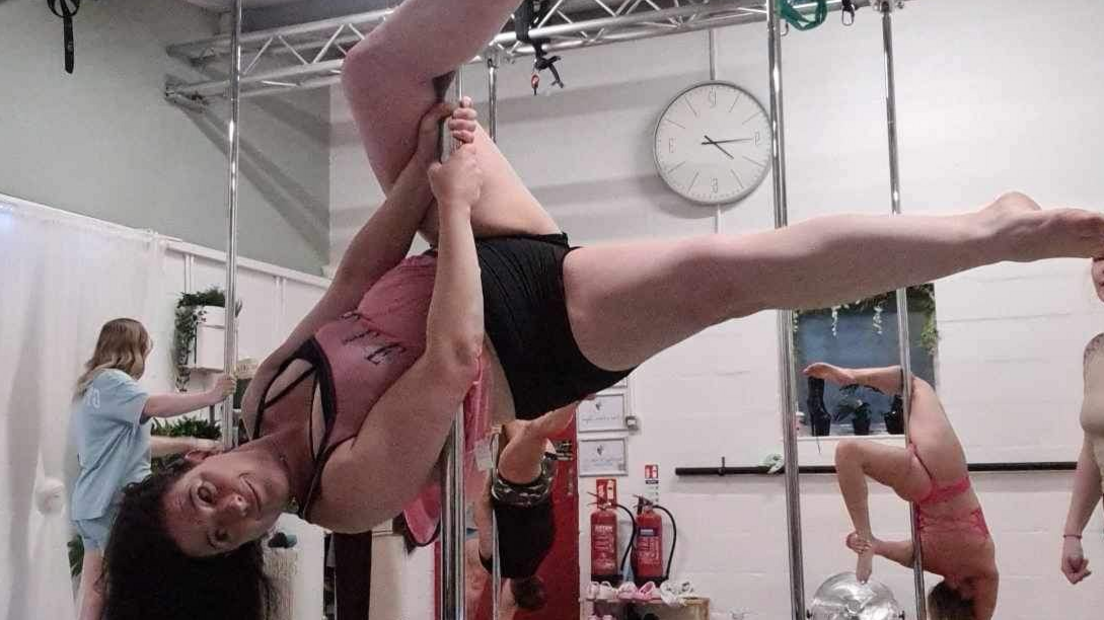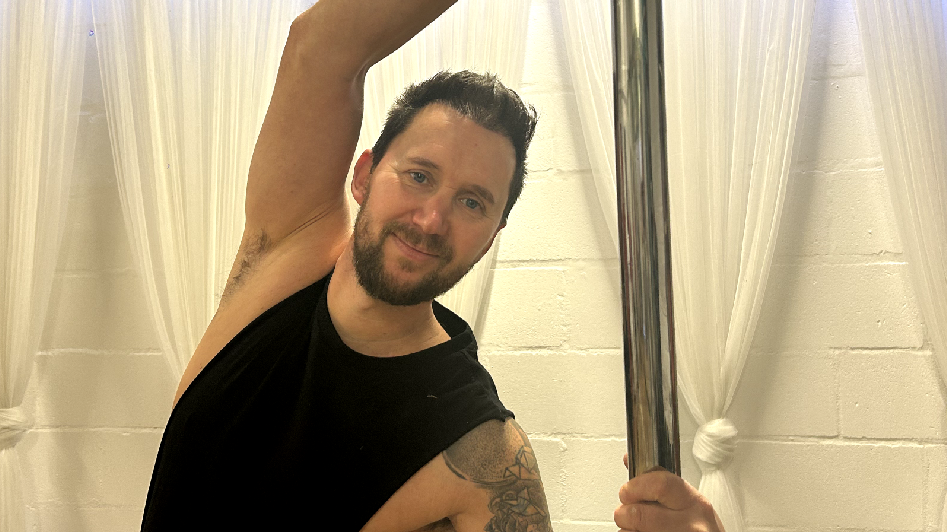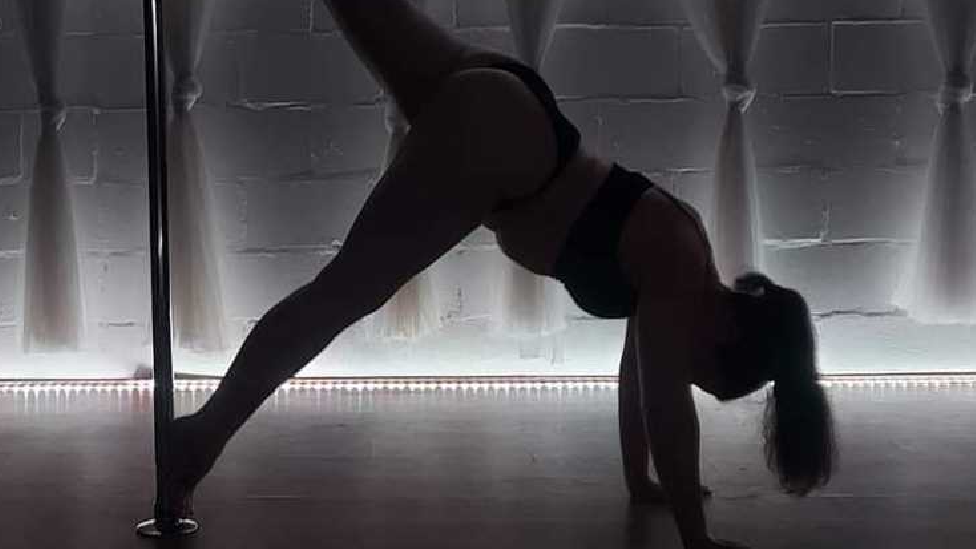Pole dancing changed my life, says woman with MS
Shelly Sutton says pole dancing changed her life after her MS diagnosis
- Published
When Shelly Sutton was diagnosed with multiple sclerosis, she felt "like my world had shattered".
It left her unable to walk, talk or drive, but she said pole dancing had helped change her life.
Shelly, 42, who was diagnosed with the condition in 2021, attends a weekly pole class and along with new medication, believes it has helped prove doctors wrong.
The MS Society, external said although there has not been any research on pole dancing and its impact on people living with the condition, any form of exercise can help mood, mobility and muscle strength.

"Before coming I could never get upside down on the pole, I’d never have dreamed of it," says Shelly
When she was diagnosed she lost feeling on the right side of her body.
She said: "Everything went through my head because the first thing you think of with MS is a wheelchair.
"I just felt like my world had shattered and the carpet had been ripped from under my feet," said Shelly, originally from Essex and now living in Merthyr Tydfil.
She was in hospital in Carmarthen for a week, where she was told by doctors that she had relapsing remitting MS, external and it was unlikely she would be able to walk again.
But she was determined to prove them wrong, and began searching for alternative ways to help rebuild her strength.
She found Pole2Fitness, a pole dancing studio owned by Lee Gardener in Aberbargoed in Caerphilly county.
"Before coming I could never get upside down on the pole, I’d never have dreamed of it," she said. "But with Lee’s help I’ve been able to master that."

Shelly says finding out she had MS was an "absolute nightmare"
'Pole dancing helped me find body confidence' Video, 00:01:47
- Published30 October 2018
Children pole dancing is 'not sexual'
- Published28 February 2016

Lee Gardener, Shelly's instructor, a pole dancer for 14 years, says pole dancing is a great sport
Lee has been a pole dancer for 14 years and opened a pole fitness studio more than a year ago.
He described it as a great exercise which works every muscle in the body, and is open to everyone.
"It’s always nerve-wracking coming in and there is a stereotype because people think we are all strippers but once you come into the room you realise that's not the case," he said.
He has had to adapt some of the classes slightly for Shelly as sometimes she struggles with remembering the routines and needs extra time.

Shelly says "pole dancing is a way of life" for her now
For Shelly, not only has pole dancing helped her physically, but it has also helped her mentally by improving her self confidence.
She said: "Pole is a way of life. It's not just a fitness class, it becomes like a family.
"Everyone's very together in that way, we support each other through the bad and good times."
Shelly also wants to change the "sexy stigma" that comes with pole dancing.
"I've got male friends who will be quite judgemental and think it's all about stripping, but then when they see the videos of me training and see the physical benefits of it their opinion often changes," she said.
While still learning to live with the often difficult reality of MS, she said pole dancing meant she was able to get her life back.
"Never in my life did I think I’d be doing what I am doing today and it is a massive life achievement. It’s completely changed my life for the better," Shelly added.
Mum hopes groundbreaking trial can help her MS
- Published5 September 2023
Caitlin Astbury, of the MS Society, said more than 130,000 people live with MS in the UK and it is unpredictable and different for everyone.
She said: "While we don’t know if there’s a specific link between pole dancing and improving MS symptoms, research tells us exercise can help mood, mobility and muscle strength for people with the condition.
"It may also help manage some symptoms including fatigue, and problems with balance and walking."
What is MS?
Multiple sclerosis is a disease that affects nerves in the brain and spinal cord.
MS affects the body in different ways and has many symptoms, but people with MS will not normally experience them all.
Some of the most common symptoms include: feeling very tired during the day; bladder problems; problems with balance and co-ordination.
At the moment there is no cure for MS, but drugs can help reduce the effects.
Eighty-five per cent of people have relapsing remitting MS, where symptoms are mild for a while, or even disappear completely.
Symptoms can suddenly flare up again in the relapse stage, and about half of these people will develop secondary progressive MS after 10 years.
Sources: NHS, external and Multiple Sclerosis Society, external